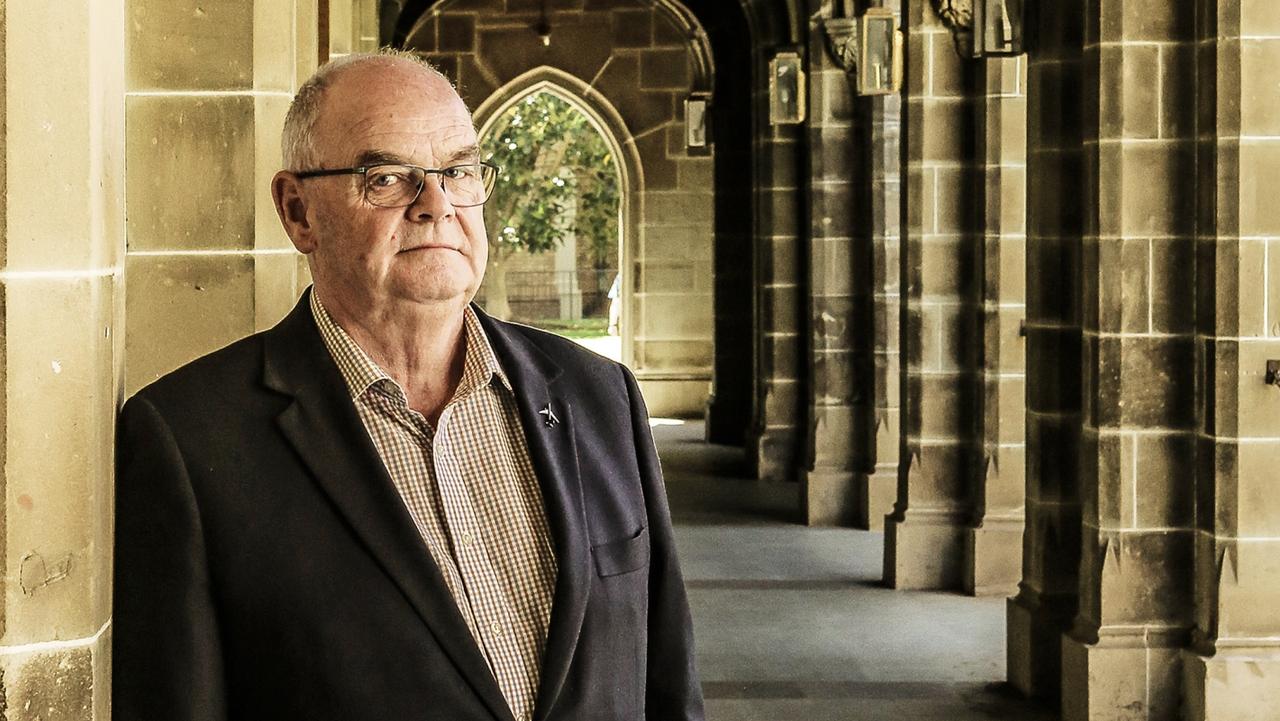Christopher Pyne's demolition of Gonski immoral, says Coalition minister Adrian Piccoli
THE Abbott government faces accusations from a state Coalition colleague of acting "immorally" by recanting on school-funding commitments.
THE Abbott government faces accusations from a state Coalition colleague of acting "immorally" by recanting on school-funding commitments and effectively punishing millions of school students.
As Education Minister Christopher Pyne prepares to face down his state and territory counterparts over school funding at his first ministerial meeting in Sydney today, its chairman, NSW Education Minister Adrian Piccoli, accused Mr Pyne of playing favourites.
"There's no doubt that what seems to be happening is that states that signed up (to the Gonski model) are being punished and the states that didn't sign up are being rewarded," Mr Piccoli told The Australian yesterday.
"They can punish me personally as much as they like but I'm not the one being punished. It's the million students in NSW, and I find that difficult as a human being. It's immoral."
Mr Pyne announced on Wednesday an extra $230 million next year for the three hold-out jurisdictions of Queensland, Western Australian and the Northern Territory, which lost their additional funding after refusing to sign up to Labor's Gonski reforms.
While Mr Pyne said the level of funding matched the amounts offered by Labor, funding information released by the previous government shows the three jurisdictions are receiving more from the Abbott government.
A funding table provided to The Australian in August by the then federal Labor government shows Queensland was due to receive $122m next year but will receive $131m from Mr Pyne; Western Australia was to receive $26.5m but will now get $31m; and the Northern Territory was due to receive $11.5m and will instead get $68m.
Mr Pyne refused again yesterday to reveal where the extra money had come from, saying it would be detailed in the mid-year budget update next month, but he did say there were no cuts to the education sector to find the money, and he categorically ruled out the suggestion the extra $230m had come from reward payments owed to the states under National Partnership agreements.
Tony Abbott and Mr Pyne guaranteed to match funding "dollar for dollar" for "every single school" during the election campaign; Mr Abbott said "we will make sure no school is worse off" under a Coalition government.
Mr Pyne this week announced the government would scrap the Gonski model from 2015 and replace it with a new system, saying Labor's model was unworkable and overly complex and the Howard government's funding arrangements for private schools were a good starting point.
Mr Pyne outlined the principles that would underpin the new funding model he intended to release next year. He said it had to be national rather than comprising different deals for every state and territory; it had to be fair between the states and territories; and it had to be based on students' needs.
He walked away from the idea of basing the model on the Howard government's system based on the socioeconomic status of students' suburbs, known as the SES system, saying he never intended to reintroduce it.
Gonski panel member Bill Scales last night supported the government's right to change the Gonski model, saying on ABC TV's 7.30 that it would be "churlish" to refuse to accept that. But the former head of the Productivity Commission said the SES model was "completely out of date" and lacked any transparency.
"There were some schools that for many years were operating in low-SES areas which today are highly gentrified and they were still getting the resources that would have come to them as a low-SES school," Mr Scales said. "Frankly, the system was broken."
Mr Scales said business, parents, schools and teachers had to leave the Gonski model behind and get involved in the new debate on school funding.
Today's ministerial meeting is expected to be fiery, with the signatory states of NSW, Victoria, South Australia and Tasmania, as well as the ACT, all demanding their agreements be honoured.
Mr Piccoli said the ramifications of breaking the bilateral agreements were wider than just school funding.
"There's no certainty," Mr Piccoli said. "When it doesn't suit them, they just tear it up. It's the first ministerial council meeting with the new government and it's starting in a zero-trust environment . . . If governments can't trust each other to sign agreements and stand by them, there are probably hundreds of agreements across government and what does it say about them?"
A new coalition called The Need To Succeed Alliance - comprising school and community groups and including three members of the Gonski review panel - today release an open letter to Mr Pyne, calling on the government to keep its "unity ticket" on Gonski for the next four years. Gonski panel members Ken Boston, Kathryn Greiner and Carmel Lawrence are among the signatories.
Additional reporting: Rebecca Puddy



